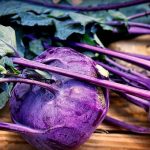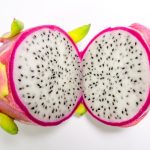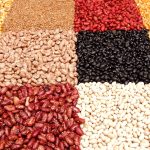The Indian gooseberry, also known as amla, is a small tree recognized scientifically as either Phyllanthus emblica or Emblica officinalis. It features yellow-green flowers that develop into round, edible fruits of a similar hue. These fruits are roughly the size of a golf ball, containing a pit and a thin skin, and are characterized by their sour, bitter, and astringent flavor. In India, amla is a common ingredient in culinary dishes, and the market is primarily filled with supplements made from the dried, powdered fruit or its extracts. Traditional Indian medicine, however, makes use of the entire plant, including its fruit, leaves, and seeds.
In India, the Indian gooseberry is a culinary ingredient and is widely available as a supplement. The entire plant is utilized in traditional Indian medicine.
The Indian gooseberry has a number of potential health benefits, though more rigorous human studies are necessary to confirm these effects. For instance, a high-quality study conducted over four weeks on 68 individuals with gastroesophageal reflux disease (GERD) found that those who took 1,000 mg of amla fruit tablets daily experienced a greater reduction in heartburn and vomiting frequency and severity compared to a placebo group. Despite these promising results, further research is required to fully comprehend the impact of Indian gooseberry on heartburn and GERD.
Anti-aging
Indian gooseberry may offer anti-aging benefits due to its high vitamin C content, which is an antioxidant that can help prevent cellular damage and slow down the natural aging process. Potential anti-aging advantages of Indian gooseberry include improved skin health by preventing collagen breakdown, promotion of hair growth, and protection against age-related macular degeneration (AMD) in eye cells. Although these findings are encouraging, human studies are needed to confirm these benefits.
Cancer
In laboratory and animal studies, Indian gooseberry extracts have demonstrated the ability to kill various cancer cells, including those from breast, cervical, ovarian, and lung cancers. The fruit’s phytochemicals, such as tannins and flavonoids, along with its vitamin C and antioxidants, may contribute to cancer prevention. However, human research is lacking, and individuals with cancer should adhere to their healthcare team’s advice and recommendations.
Heart Health
Indian gooseberry is commonly used to support heart health. It may reduce the risk of heart disease through its antioxidant properties, regulation of endothelial function, anti-inflammatory effects, normalization of blood fat levels, reduction of blood pressure, and anti-platelet effects. Although some human studies have been conducted, more research is needed before Indian gooseberry can be recommended as an effective heart health supplement.
Blood Sugar Levels
Animal studies have shown that Indian gooseberry can help lower blood sugar levels, and this effect was also observed in a small human study. These findings suggest that Indian gooseberry may be beneficial in preventing and treating type 2 diabetes, but more high-quality human research is needed.
Liver Damage
In studies on rats, Indian gooseberry extract protected against liver damage caused by a high-fat diet or toxic substances. This is likely due to its anti-inflammatory and antioxidant activity. However, human studies have not yet been conducted.
Immune Health
Indian gooseberry may strengthen the immune system owing to its vitamin C content. Vitamin C is an antioxidant that can reduce cellular damage and inflammation. It may also promote the proliferation of phagocytes and the development of protective antibodies. Chronic inflammation is linked to an increased risk of health conditions like diabetes, heart disease, and autoimmune disorders.
Summary
Indian gooseberry may support heart health, offer anti-aging effects, improve immune function, and reduce the severity of heartburn and cancer risk. More human research is required to fully understand these potential effects.
While sourcing fresh Indian gooseberries might be difficult outside of specialty markets, dried versions are available online. Taking Indian gooseberry as a supplement could have side effects, such as thinning the blood and preventing normal clotting, especially for those with bleeding disorders or on blood thinners. It may also lower blood sugar levels, which could affect individuals with diabetes or other blood sugar management conditions. Pregnant or breastfeeding women, or those trying to conceive, should avoid Indian gooseberry due to a lack of evidence regarding its safety.









